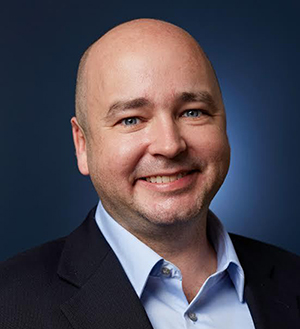Student Event
Tales of Commercializing Engineering Research and Related Irrational Endeavors
Add to Google Calendar

Dr. McCorquodale is speaking in a first year engineering class, open to guests for this lecture.
ABSTRACT
Most students in physical sciences eventually realize the golden rule of a successful thesis or dissertation: it takes only one functioning device to graduate. The corollary is that the device must function long enough to capture any meaningful data from it. That can be elusive. In this seminar, the gap from there to commercialization will be discussed including experience commercializing a wide variety of microelectronic products and systems such as: semiconductor products (IC and MEMS devices), chemical instrumentation based on a MEMS platform, class III implantable micromachined medical devices and, even, LED lighting fixtures. What is consistent across these endeavors is that all are products based on university research and technology transfer. Additionally, these are the technologies and products the speaker has brought to market as either a founder or under his leadership as CEO (of course along with his venerable colleagues). The other consistent aspect is that each effort was far worse and more painful than any rational human being (and particularly, investors) could have ever anticipated. Nonetheless, successes were achieved. At one point, the speaker's first company, Mobius Microsystems, had managed to move from a handful of prototype devices in the lab to shipping 10 million units in a month. None of that happened immediately. As Steve Jobs once observed, "if you really look closely, most overnight successes took a long time." Nothing could be truer of the commercialization of university research. This seminar will be linear only in time, but meander through the speaker's experience in commercializing research, which is irrational, unpredictable, but also rewarding. Topics to be covered include the history and current state of entrepreneurship in university, direct experience with technology transfer in the early 2000's, how the world has changed in the present (for the better, as well as the worse) and then colorful stories about commercializing university technologies out of Michigan, Utah, and Berkeley. Those interested in commercializing their own work are encouraged to attend. The faint of heart are discouraged.
Dr. McCorquodale has dedicated his entire career to the commercialization of university research, including his own. Some efforts have gone very well while others are yet to be determined. Some have even been spectacular failures. As he recovers from 12 years in the Bay Area, Dr. McCorquodale is now working with Microtech Ventures, a local firm focussed on mergers and acquisitions in the semiconductor, MEMS and sensor space. He is also advising local start-ups. He started his career as the founder of Mobius Microsystems, a venture-backed start-up that developed silicon frequency control devices based on his doctoral research at the University of Michigan. Mobius was acquired by Integrated Device Technology (NASDAQ: IDTI) where he went on to lead the newly established BU as GM and the product line received 3 "Product of the Year" awards. Later Dr. McCorquodale was involved with several starts-ups as the co-founder of e-SENS, the CEO of Cortera Neurotechnologies, the first EIR at Pear Ventures and the CEO or Arborlight. He has also instructed courses at the University of Michigan in MEMS, integrated circuits and embedded systems. He even taught the Microprocessor section of ENGR100! Dr. McCorquodale earned the B.S.E. degree with honors from the University of Illinois at Urbana-Champaign where he was a James Scholar and an invited member of the Eta Kappa Nu honor society. He completed the M.S.E and Ph.D. degrees at the University of Michigan, also in Electrical Engineering. He has been recognized with numerous awards for academic achievement, entrepreneurship, business development and innovation including the "Innovator of the Year Award" which was presented by UBM Electronics (publisher of EETimes). He is a Senior Member of the IEEE. In his spare time, he tends to jump on airplane and go anywhere in the world.
 MENU
MENU 
